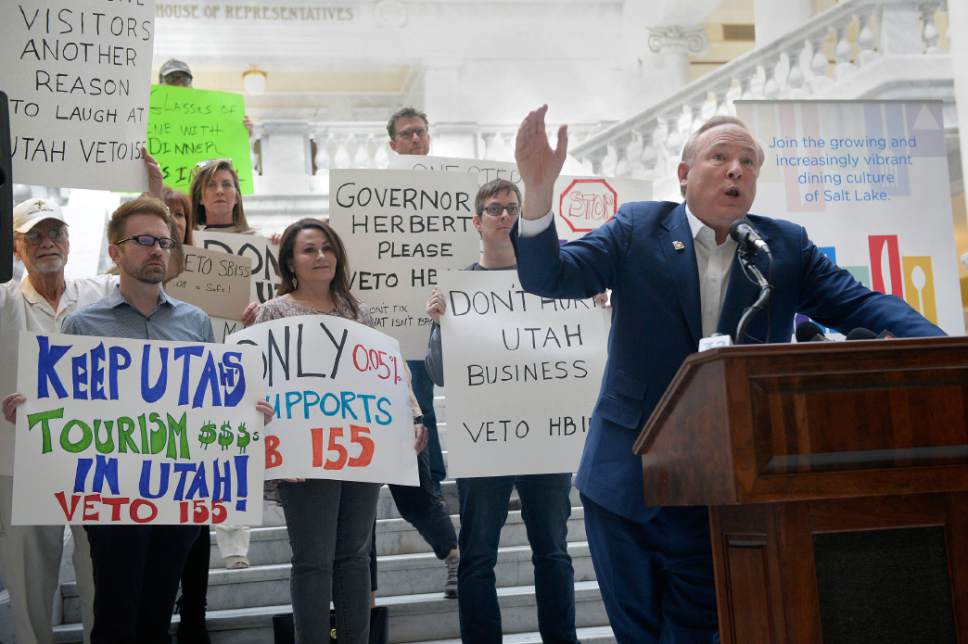This is an archived article that was published on sltrib.com in 2017, and information in the article may be outdated. It is provided only for personal research purposes and may not be reprinted.
In passing a bill to make Utah's driving under the influence standard the strictest in the nation, members of the Utah Legislature have overdriven their own headlights. Gov. Gary Herbert would do us all a favor if he would veto the measure so we can slow down and reconsider.
Sponsors of House Bill 155 are no doubt sincere in their desire to make Utah streets and highways safer. But by leaping ahead of every other jurisdiction in the United States, with only faith that it would really accomplish their goal, lawmakers are conducting a scientifically sloppy experiment. And Utah drivers are the guinea pigs.
The fact that the law would not kick in until the end of 2018 indicates that even the Legislature has qualms about what is has done, and might appreciate a chance to revisit the issue.
By lowering the legal limit from 0.08 to 0.05 blood alcohol content, the law is far too likely to entrap people who — depending on their weight — may have only had one drink with dinner. The idea that such behavior was acceptable yesterday, but criminal tomorrow, is just the kind of thing that engenders widespread disrespect for the law.
That goes double in Utah, where government is dominated by members of a church that forswears alcohol, leaving the rest to wonder if people who draft the laws have a clue about how the other 40 percent lives. Especially when things that non-drinkers do to make driving dangerous — texting and other use of cell phones — don't face the same level of legislative hostility.
This message bill also stands to be bad for business. Regardless of the exact measurements involved, once it gets around that a single beer or glass of wine will be grounds for arrest and prosecution, the number of people — locals and visitors — who will not only forgo the booze, but skip the dinner altogether, stands to be a big hit not only on restaurants, but on the convention and tourism business as a whole.
Our state has already done enough to handicap the hospitality industry, not just through unique and absurd liquor laws but also by gaining a reputation for being hostile to our main attraction, our public lands.
We are told that many European nations, where drinking is normal, have lowered their BAC levels to 0.05. But often they actually have two levels. One is 0.05, or even lower, that results in small fines and license suspensions. The other "aggravated" level, as high as 0.11, is where the real criminal penalties kick in.
Unless we want to copy that two-tier system — as well as a culture with ubiquitous corner pubs in walkable neighborhoods with extensive public transit systems — it is not wise to mimic that one number.



